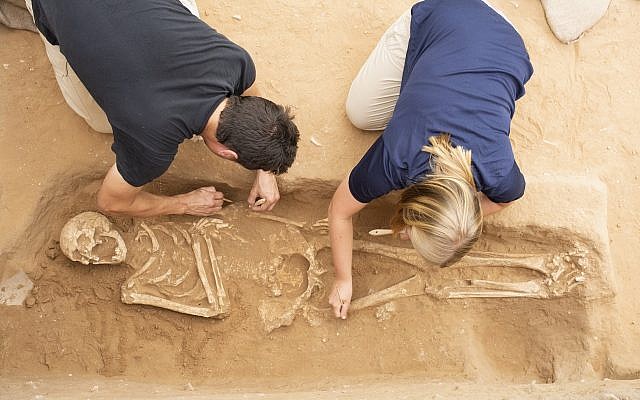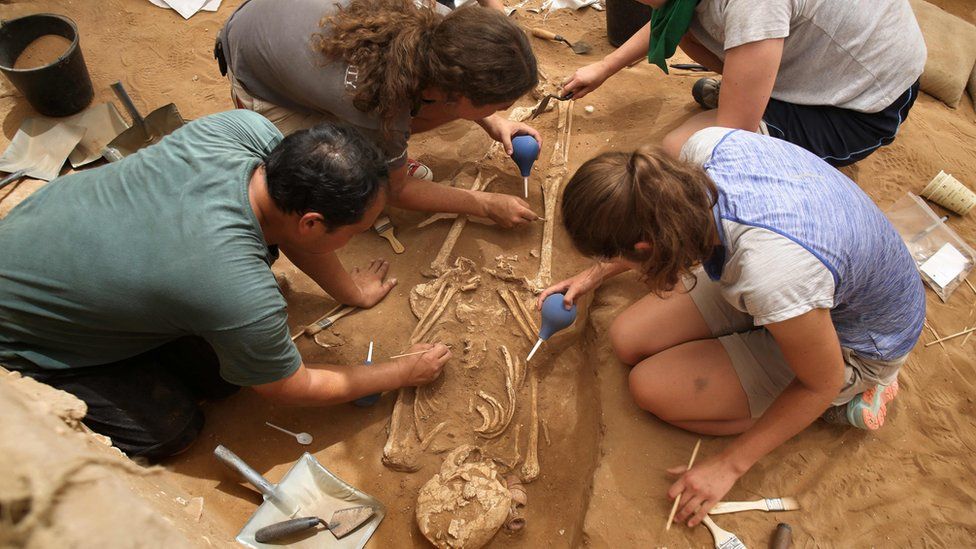Unveiling the Ancient Past: The Philistine Cemetery Unearthed at Ashkelon
Archaeological discoveries have the power to unravel the mysteries of our past, shedding light on civilizations that have long faded from memory. One such remarkable discovery is the unearthing of the Philistine cemetery at Ashkelon, a momentous find that offers unprecedented insights into the lives and customs of an enigmatic people. This ancient burial ground, situated outside the walls of the historic city of Ashkelon, marks the first and only Philistine cemetery ever discovered, presenting a unique window into a civilization that has captivated historians and archaeologists for centuries.
Ashkelon, located on the Mediterranean coast of modern-day Israel, holds a significant place in history as a strategic city that played a pivotal role in the power struggles of the ancient world. Throughout its existence, Ashkelon witnessed the rise and fall of various civilizations, including the Egyptians, Canaanites, Philistines, and later, the Greeks and Romans. Its location made it a hub for trade and cultural exchange, influencing its diverse and cosmopolitan character.
The Philistines are a people who have long intrigued scholars due to their limited historical records and the elusive nature of their origins. Believed to have migrated to the eastern Mediterranean around the 12th century BCE, the Philistines established five major city-states along the southern coastal plain, one of which was Ashkelon. They are often mentioned in biblical texts, where they are depicted as rivals of the Israelites. Despite this, little was known about their customs, beliefs, and burial practices until the discovery of their cemetery.
In recent years, a groundbreaking archaeological excavation outside the ancient walls of Ashkelon revealed an astonishing burial ground that belonged exclusively to the Philistines. The discovery of this cemetery has allowed researchers to gain unparalleled insights into Philistine culture, as burial practices often provide crucial information about a society’s beliefs and social structure.
The Philistine cemetery at Ashkelon has yielded a wealth of information about this enigmatic civilization. The tombs contained a variety of burial offerings, including pottery, jewelry, and weapons, shedding light on the material culture of the Philistines. The arrangement of the burials and the grave goods also suggest a complex social hierarchy within their society.
Furthermore, the analysis of skeletal remains has provided valuable information about the physical characteristics, health, and lifestyles of the Philistines. Isotopic analysis of teeth has revealed details about their diet and origins, offering glimpses into their migration patterns and interactions with neighboring cultures.
The preservation of the Philistine cemetery remains a significant challenge, as exposure to the elements and other environmental factors threaten its integrity. To address this concern, archaeologists are employing advanced preservation techniques and collaborating with experts in various fields to ensure the long-term protection and study of this invaluable site.
The unearthing of the Philistine cemetery at Ashkelon stands as a milestone in the field of archaeology. This remarkable discovery has shattered the barriers of historical ambiguity surrounding the Philistines, providing a tangible connection to this enigmatic civilization. As researchers continue to unravel the mysteries held within the burial ground’s confines, the Philistine cemetery promises to reshape our understanding of ancient history and shed light on a civilization that has long been relegated to the realms of myth and speculation.
Hits: 3




